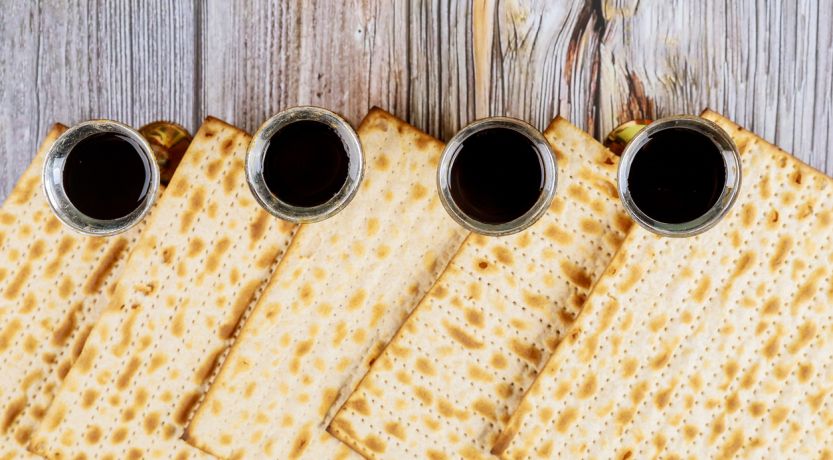Is the Passover Jewish or Christian?
Jews keep it to remember the Exodus, while most Christians disregard it as a Jewish national holiday. But what should Passover mean to you?

Every year Jews celebrate Passover with a special meal called the seder (meaning order).
The service involves reading, drinking wine, telling stories, eating foods, singing songs, and other traditions. The service involves four cups of wine, which represent various aspects of Israel’s exodus from Egypt. A cup is also poured for Elijah, whom Jews are waiting for to announce the coming of Messiah. The meal consists of foods used to remind them of the bitterness of the slavery and the joy of their freedom.
On the other end of the spectrum, most of Christendom believes the Passover ended with Jesus’ death on the cross and was later replaced with Good Friday and Easter.
However, both the Bible and history show that the early Church continued to observe the Passover. Polycarp, a pupil of the apostle John, fought zealously against those who proposed changing the Passover to a day not prescribed in the Bible (Leviticus 23:5). To learn more about this interesting history, read “Church History: Polycarp and Polycrates.”
Passover, a memorial of …
For Jews, the Passover is a memorial of the miraculous deliverance of the Israelites from Egyptian bondage after God used 10 plagues to show His power over the “gods” of Egypt (see “A Deeper Look at the 10 Plagues”). In His 10th plague, God killed the firstborn of all the households that didn’t have lamb’s blood on their doorposts. The Israelites were spared from death through the blood (Exodus 12:22-23, 30).
About 1,500 years after the Passover was instituted through Moses, Jesus came as the ultimate Passover Lamb of God.
But does the Passover have any connection with Christianity? Many are surprised to learn that Passover is just as Christian as it is Jewish.
About 1,500 years after the Passover was instituted through Moses, Jesus came as the ultimate Passover Lamb of God (John 1:29). He was sacrificed for our sins on the Passover (Matthew 26:2). The apostle Paul describes Him as “Christ, our Passover” (1 Corinthians 5:7).
Jesus did not abolish the Passover, but actually transformed it by revealing its deep spiritual significance. He introduced new symbols: taking unleavened bread and wine as a remembrance of His sacrifice (Luke 22:15, 19-20).
The apostle Paul later reinforced this, explaining that Jesus said we should “do this in remembrance of Me” (1 Corinthians 11:24) on the “same night in which He was betrayed”—which was the evening of Passover (verse 23).
New Passover symbols
The truth is that the events of the Old Testament foreshadowed what Christ would do when He came as the Son of Man. Here is a brief description of the primary symbols of the New Covenant Passover:
Foot Washing: Represents Christ’s deep love, humility and serving attitude, which we are to emulate (John 13:1, John 13:5-8, 9-11, 12-15; 1 Peter 5:6).
Unleavened Bread: Represents Christ’s sinless and broken body for our sins (Matthew 26:26; 1 Corinthians 11:24). When Christians observe the Passover, they remember the suffering Christ endured to bear our sins and our need to have Him living within us to receive eternal life (1 Peter 2:24; Isaiah 53:5; John 6:53-55, 56-58; Colossians 1:27).
Wine: Represents Christ’s blood, which was poured out for us. His shed blood instituted the New Covenant (Matthew 26:28; 1 Corinthians 11:25).
When Christians observe the Passover, they remember the covenant they made with God at baptism. The New Covenant is based on God’s writing His laws on our hearts, forgiveness of sins and the promise of eternal life (Hebrews 8:8-9, 10-12; 9:15).
The Passover and the other festivals of God
The Passover is the first of seven festivals God commanded His people to observe (Leviticus 23). Each of these festivals pictures a part of God’s plan to bring humanity into His family.
None of the other parts of God’s plan can happen without forgiveness through Jesus Christ—the meaning of the Passover.
Date Posted: April 19, 2024



